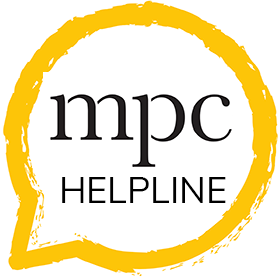
Therapy for adults
If you live in Camden or Islington, or have a Camden or Islington GP, you can come to the MPC for an NHS-funded assessment and NHS-funded therapy. Fill in an online referral form and we will be in touch.
If you live elsewhere in the UK you will need a GP referral unless you wish to pay privately. Read more here about how to get referred to the Michael Palin Centre and about the therapy approaches that we use.
If you live overseas you can contact us to find out about the fees for private sessions by emailing [email protected].
Key things to know
- one-to-one therapy with an expert clinician
- NHS funded if you live in Camden or Islington or have a Camden or Islington GP
- available if you live elsewhere provided funding has been agreed through local NHS Commissioners or if you wish to pay privately
- accessed through our assessment clinic for adults
- face-to-face or remote sessions available
- weekday sessions, office hours
Returners
- if you are under 25 and came here for therapy when you were in your teens then we can see you again for some top-up sessions no matter where you live in the UK. If you would like to more than a ‘top-up’ then funding will be required.
- Returner top-up sessions are charitably-funded by the Stuttering Foundation
- say on your referral that you are a returner

Listen to Stacey talking about coming to the MPC for therapy
What sort of therapy does the MPC offer?
Therapy can focus on communication skills, speech skills, psychological skills or a combination of these, depending on what you are interested in.
Speech skills
We can help you to explore or revisit speech techniques which may help you to struggle less or feel less tension when you stammer. However we encourage people to think of the big picture of their communication skills and confidence as a person who stammers.
You may have experience of learning speech techniques before and you may or may not feel that it is the right approach for you now. Learning or using speech techniques is not the only way to move towards the goals that you have and indeed feeling more comfortable about stammering, and stammering openly rather than feeling that you should not stammer can be an important and liberating idea.
Psychological approaches
For many people what affects day-to-day communication and quality of life are thoughts about how people will respond to them if they stammer, emotions related to that, feeling less confident in themselves and as a result being more cautious about speaking and participating.
Practical skills from psychology will help you work with your thoughts and emotions so that you feel more confident to speak. These approaches may also help you to explore beliefs about yourself or about stammering that are holding you back, and help you to be more accepting of yourself as a person who stammers.
Psychological therapies include Cognitive Behaviour Therapy (CBT), Acceptance and Commitment Therapy (ACT), Solution Focused Brief Therapy (SFBT) and Neurolinguistic Programming (NLP). Our therapists have qualifications in these psychological approaches and can integrate these into your therapy.
Cognitive Behaviour Therapy (CBT)
CBT is based on the idea that what we think affects how we feel as well as how we respond in situations. As human beings we are naturally attuned to anything that feels threatening, including being rejected, criticised, or judged and this can create a vulnerability to emotions such as anxiety.
Some people who stammer feel more anxious in social situations because of their stammer and experiences that they have had in the past. In CBT you get to know the way that your thinking can sometimes be unhelpful, explore different perspectives, test your assumptions and use problem-solving skills to handle situations with more confidence.
CBT is widely used in the NHS to help people with anxiety, depression and other emotional difficulties. Over the last 20 years the use of CBT in therapy for stammering has been developed and researched. It has been shown to reduce speech-related social anxiety in adults who stammer.
We have therapists with formal qualifications in CBT and all of the team have experience in using CBT.
Acceptance and Commitment Therapy (ACT)
Acceptance and Commitment Therapy (ACT) (pronounced ACT rather than A.C.T.) helps you learn to be open to all aspects of your experience (the stuff you like and the stuff you don’t) instead of struggling with things. In ACT you learn how to be more present (mindfulness skills), to step back or ‘unhook’ from the thoughts and feelings that undermine your confidence, and to help you do more of the things that will take you forward in your life in a way that is important for you.
ACT and mindfulness are increasingly being used with people who stammer.
Solution Focused Brief Therapy (SFBT)
Solution Focused Brief Therapy (SFBT) helps people to get a clearer picture of how they want life to be and to start making changes in that direction. SFBT sessions bring your strengths, and the changes that you are already making, into sharper focus. In SFBT you are encouraged to notice small changes which show that you are building your life in the way you want to.
Communication skills
Many people find that stammering, or trying not to stammer, affects their natural way of communicating. For example you may look at people less if you are worried about how they might react to you stammering, or you may stop listening to what people are saying if you are focused on which words to use. Sometimes people have lost confidence in their ability to communicate effectively because they stammer.
Therapy can help you to fine-tune your communication skills so that you come across as a confident and effective communicator and also help you grow belief in your ability to communicate well.
FAQs
There are different pathways depending on where you live. If you live within Camden and Islington (or have a Camden or Islington GP) you can refer yourself by completing the referral form here.
If you live elsewhere you need to be referred by your GP and they will need to agree to pay for you to attend. You can pay to attend privately if you prefer that.
Read about getting referred to the MPC here.
That is fine. Many people don’t know that much about what sort of therapy is available, and when that is the case it can feel daunting starting out. If you feel you would like to explore therapy then the main thing is to get in touch, and the therapist you talk with will help you gradually work out the right direction for you. People often want to explore different ideas, or combinations of things, and the direction that therapy takes can change over time as well.
We are open from 9am – 5pm Monday to Friday. Our first therapy sessions are typically 9 or 9.30 and our latest ones are typically 3.30 or 4pm.
Yes. Discuss it with your MPC therapist if you have already been in for an assessment, or let us know on your referral form if you would like to have your session remotely.

Sometimes you just need someone to talk to


Sometimes you just need someone to talk to
Our Helpline, 020 3316 8100, is open during office hours (9am-5pm) and voicemail messages can be left when the office is closed.
“It was an inspiring course, brilliant for teenagers who stammer but LOTS of transferrable skills. Well-paced, made the therapy come to life, lots of information, humorous!”
